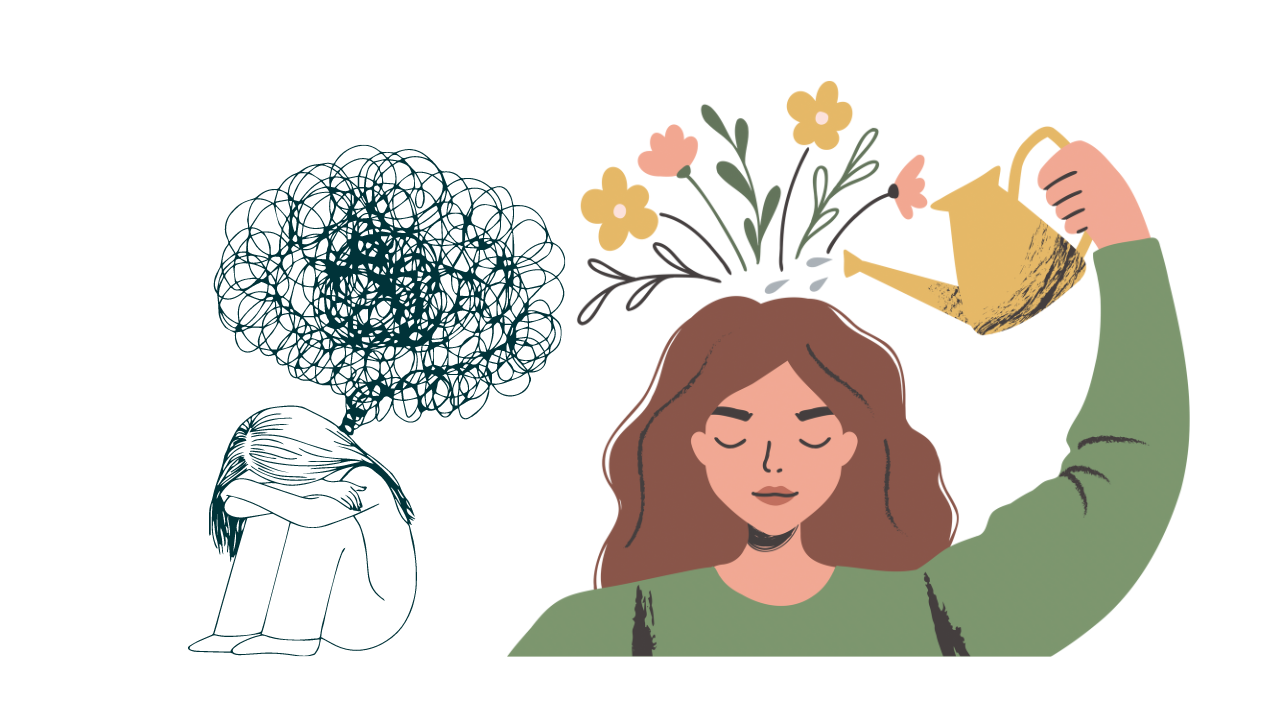How to manage your mean bitch thoughts

Ever caught the voice in your head giving you a hard time? Friend, you're not alone.
Your inner dialogue could be one of your biggest sources of stress. Stress chemicals can be released into your body simply by your thoughts; Self-judgement, body dissatisfaction, anxiety about weight gain, criticising yourself for (fill in the blank), the list goes on….
Your thoughts are always the precursor to your feelings and your actions. So, working on your thoughts will support you in feeling better and being more intentional in your behaviours. A good way to do this is to practice thought work (AKA thought reframing).
Step one to managing the mean b*tch
That voice in your head is influenced by many different things: diet culture, society, your family experiences, work experiences, friends and so much more.
Realising that these thoughts do not define who you are – in fact more often than not, they are the voice of your mother/brother/nasty boss, ex-partner - is the starting point. Your inner dialogue is very often a result of conditioning, and women are far more likely to have a critical voice and thoughts that lead them to experience a low sense of self-worth than men.
Become aware that you have an opportunity to listen out for this and change it.
Step two in managing the mean b*tch
Practice thought work. Once you become aware of your inner dialogue, rather than believing it and allowing it to infiltrate your subconscious, start asking questions.
Is that really true? Is there evidence for that thought? Where did the thought stem from? How does it make you feel? Does it support you in achieving your goals? Is there a better way to think about this?
These are two examples that I offered up in The Non-Diet Method community recently:
Situation: My trousers don't fit.
Default, bitch thoughts: I'm too fat for these trousers - I need to lose weight, I have no self-control
Resulting feelings: Shame, disappointment, frustration, anger, embarrassment.
Outcome: These kinds of feelings can often be the pre-cursor to overeating, spells of social withdrawal, acting in ways that are not helpful to you.
Questions you could ask yourself about these thoughts:
Why am I thinking like this? Because a person around me when I was younger spent a lot of time scrutinising her appearance and pointing it out to me when I gained weight.
Is this thought helpful to me? No, that person over focused on her body shape and as a result she was unhappy a lot of the time.
How can I reframe this thinking so that it doesn’t interfere with my life and I can feel better? Speak to myself as I would a friend
Sometimes, your thoughts are so subconscious, you might not notice them as a thought as a such, but rather, a feeling:
Case in point: Catching yourself feeling bad for taking rest.
Questions you could ask here: Why am I feeling like this? Mother/brother/teacher called me lazy.
Is it true that I am lazy? Hell no! Look at how much I do day-to-day and actually, I now realise that rest is a hugely a valuable part of self-care.
Is this thought serving me? No! It's reflective of their struggles with taking rest, not mine. My values and life are quite different to theirs.
Step three in managing the mean b*tch
Get into a habit of listening out for thoughts that are causing you to feel bad about yourself. Question them. Consider that they might not be your stories. More often than not, they’re someone else's stories that have been projected on to you as a result of that person's life experiences and difficulties. When you can think about it that way, it can help you to soften not only towards yourself but to them too.
Thought work needs to be ongoing, and it's worth it. It's work that has the power to change your relationship with yourself, which is the starting point to changing your relationship with food and self-care.
These are the kind of things we address inside The Non-Diet Method. If you want to improve your relationship with food and your body for the better - come on in, we're waiting to welcome you.

